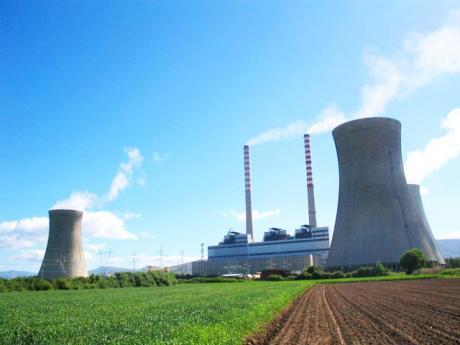The Thermal Power Station Bitola was the biggest polluter in the entire West Balkan in 2022 with sulphur dioxide and dust particles. The emissions from the TPS Bitola’s chimneys have doubled compared to 2021, despite of one of the blocks being out f order almost the entire year, due to a fire.
According to the CEE Bankwatch Network’s latest report Adjust or Close – 2023(1),TPS Bitola is by far the most polluting industrial capacity among the countries of West Balkan”, the NGO Eco Awareness informs in a written statement to the media.
“With only two operational blocks in 2022, TPS Bitola gushed 111,408 tons of sulphur dioxide in the air. This quantity is 17 times bigger than the quantity allowed by the National Plan to Reduce Emissions(2), at the same time being more than the total emissions allowed for all coal thermal power stations in the entire region of West Balkan. The raise of emissions of dust are also alarming, and amounted to 3899 tons in 2022, more than three times the allowed quantity for the first and the second block of TSP Bitola. This is also the largest quantity of dust emitted from one chimney in the entire West Balkan”, the NGO statement reads.
Five years after the rules for pollution control came into force through the Agreement on European Energy Community, the Macedonian power stations, in contrast to the obligations of thee Agreement, are increasing the quantities of emissions, instead of decreasing them. The European Community’s Secretariat already initiated a case(3) against Macedonia for disrespecting the provisions on emissions decrease.
“The entire region is endangered by the uncontrolled pollution from the power stations working on coal, nd every year we watch the large power stations in Serbia and Bosnia and Herzegovina braking records in pollution. But, such an enormous peak in the emissions as in TSP Bitola in 2022 was never previously recorded. The consequences of this kind of pollution will be huge for the Bitola region, but also for the entire country and wider”, Davor Pehchevski of CEE Bankwatch Network.
“The Government of Republic of Macedonia adopted ambitious climate and energy goals, which included closure of all coal capacities by 2027. We need to meet the deadlines for realization of these goals, in order to convey a clear message to the energy sector, the industry, and the citizens that the country will consistently adhere to thee abandonment of fossil fuels, just transition toward renewable sources, and clean technologies and care for the citizens’ health”, Elena Nikolovska from Eco Awareness said.
т.




Comments are closed for this post.